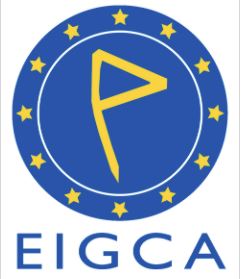As the professional body for golf course architects working in, or based in, Europe, the European Institute of Golf Course Architects has a duty to educate future golf course architects.
The EIGCA Vocational Qualification in Golf Course Design (EVQGCD) is the only education programme of its kind, and the only professional qualification in golf course design available in the world.
To support EIGCA’s commitment to accessibility and diversity with the golf course design profession, EIGCA’s Education Board, under the Chairmanship of Niall Glen MEIGCA, undertook a review of all areas of the EVQGCD. The Education Board was clear from the outset that the high standards required to pass the programme, and EIGCA’s desire to support and guide talented and dedicated individuals through the training programme to prepare them for a career in the industry, would not be diminished from the review.
The headlines of the restructuring are:
Applicants – a review of previous applicants for the course, and analysis of any repeated issues encountered during previous intakes, found that an intake limited to 4 or 5 students meant people were being rejected before given an opportunity.
Outcome – an increase in the number of places offered in Year 1 of the programme (a maximum of eight people) provides more opportunities for candidates with a wider spectrum of backgrounds and experiences to join the programme and decide if a career in golf design is right for them.
Course structure – an analysis of previous intakes found that there needed to be more delineation between Years 1 and 2 of the programme to give students the opportunity to learn through a foundation course and decide if they were making the right career choice.
Outcome– the course is now structured as one Foundation year (Year 1) followed by one Advanced year (Year 2). This change, coupled with the increase in places in Year 1, gives more candidates the opportunity to ‘test the water’. Only the more capable students in Year 1 will progress to the advanced part of the programme (Year 2).
Achievement Levels – historical data from previous intakes found that students who achieved an average of below 65% in Year 1 did not go on to complete the course.
Outcome – the onus is on the student to prove they are of the standard required to progress from Year 1 to Year 2 by achieving an average mark of 60% or more across all assignments in Year 1. The student then needs to achieve an average of 50% on each assignment in Year 2 in order to graduate.
Mentorship – the previous requirement to be mentored by an EIGCA member in Year 1 and Year 2 was restrictive in terms of accessibility to the programme.
Outcome – Mentorship by an EIGCA member is now encouraged, but not mandatory, in Year 1. In Year 2, it remains mandatory for a student to have mentor relationship with an EIGCA member.
Niall Glen MEIGCA, concludes: “The restructuring of the course provides more places and opportunities in the first, Foundation, year. However, students need to demonstrate determination, passion and talent to reach the standard to progress to the Advanced year, where the assignments will prepare them for a move into the profession.
“We look forward to welcoming the next cohort of students – the widest geographic spread of six students from 6 countries on 3 continents that the EVQGCD has had – when they commence their studies in May 2021. We wish them every success.”
For a more in-depth read of the changes made to the EVQGCD programme, visit www.eigca.org/careers-in-golf-course-design-qualification


